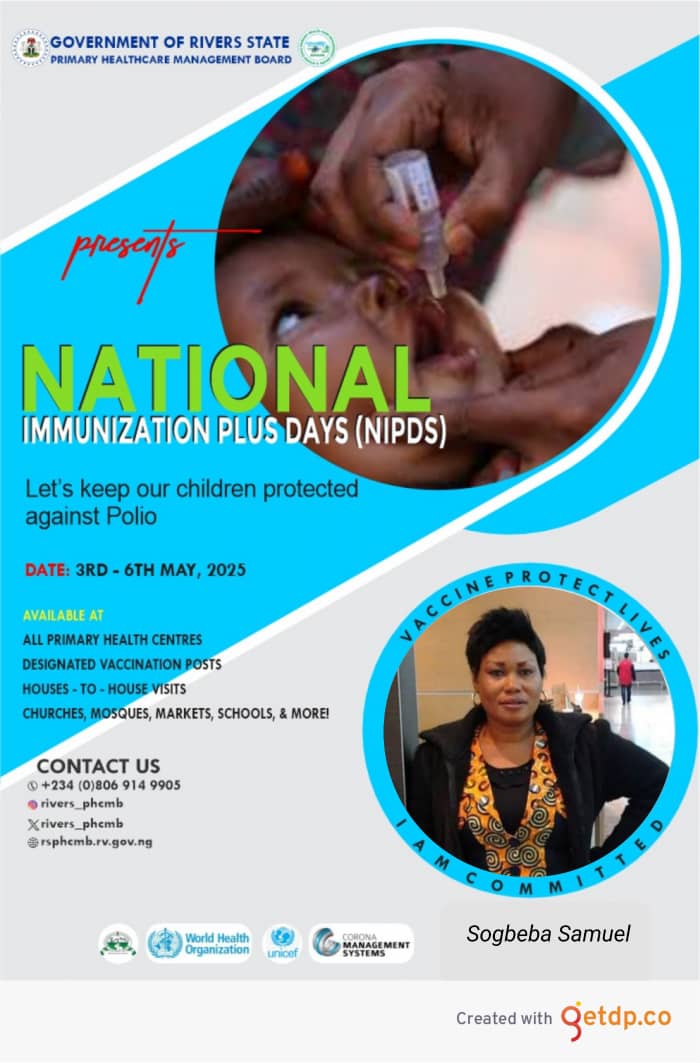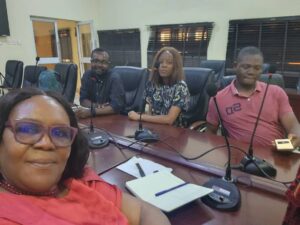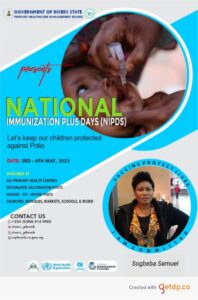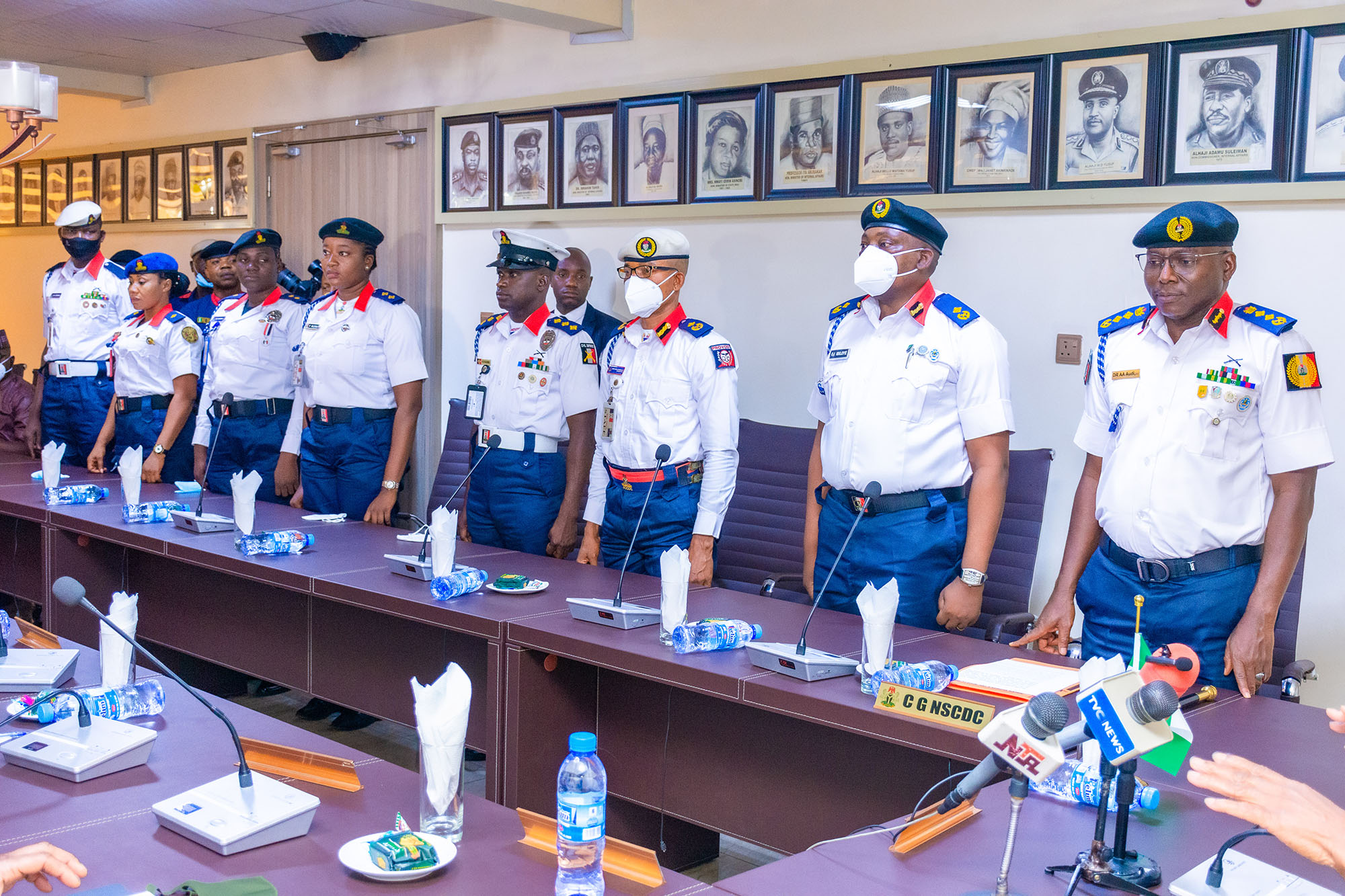Rivers
Network Makes Case For ATM, Gender-Based Violence In Nigeria

A Civil Society Organisation (CSO), TB Network, has called for more commitments in efforts made to address the barriers to HIV/AIDS, Tuberculosis, Malaria (ATM), and Gender-Based Violence (GBV) in Nigeria.
The State Focal Person, Tuberculosis (TB), Rivers State, Mr. Messiah Fyneface Muzan, who made the call, Thursday, in a media parley in Port Harcourt, profered a seven-point agenda towards this end.
In his presentation, sub-titled, “Call To Action: Addressing HIV, TB, Malaria and Gender-Based Violence in Nigeria”, Muzan said, to advance the fight against HIV, TB, Malaria, and Gender-Based Violence in Nigeria, one of the key things for relevant authorities to do is for the National Health Insurance programme enjoyed by the formal sector to be extended to others, particularly the poor and most vulnerable.
According to him, this is because, “the poor often are less educated and unemployed, and consequently lack the ability to pay out-of-pocket for high costs associated with frequent illnesses”.
He also said, “funding and finances for Primary Health delivery should be carefully mapped out and sanctioned against any misappropriation or mismanagement, to enable a robust public health programme at all Ward levels in the Local Government.
“Communication and education programmes, he said, can raise knowledge and awareness, and, in turn, improve testing and care-seeking”.
He said this is because of the need to “educate, engage, and empower the communities to embrace any behaviour change relevant to achieving success in HIV, TB, and malaria control in Nigeria “.
The State Focal Person on TB further said every Ward should commit to health promotion and education programmes to increase awareness of prevention measures, and promote community participation, while adhering to evidence-based strategies.
Other proposals by the State TB Network boss are: “commit adequate resources through advocacy and partnerships for the full and effective implementation of planned interventions, including through involvement of the private sector and community participatory approaches.
“Community members should actively support and advocate their local Primary Health Care Centers (PHCs). Community involvement is crucial in ensuring sustainability and effectiveness of these centres.
“Additionally, community support can manifest through volunteering, donating resources, or participating in advocacy efforts to secure increased funding amd resource for PHCs”.
On Gender-Based Violance and gender human rights, he noted that they occur through such forms as domestic abuse, verbal aggression, physical violence, early and forced marriages, incest, Female Genital Cutting (FGC), acid attacks, and outright killings, saying women, men, boys and girls “continue to endure degradation and deprivation in both public and private spaces”.
For the stated reasons, he said, “the Civil Society for the Eradication of TB in Nigeria calls on all stakeholders to combat the rising cases of GBV in our society.
“We implore every citizen not to remain silence. Let us unite our efforts to eradicate this menace from our nation. If you witness something, please speak out”.
By: Soibi Max-Alalibo
Niger Delta
Rivers Begins, Supplemental Polio Vaccination, Morrow

The Rivers State Primary Healthcare Management Board (RSPHCMB) says it will commence Supplemental Immunization activities on Saturday, May 3, 2025, to vaccinate children from 0-5 years across the State.

The State Health Educator, Dr. Diana Babbo, who stated this during a sensitisation meeting with Media Advocate for Health, Rivers State, on the update of immunization exercise in Rivers State, said the National Immunization Plus Days (NIPDs) is a re-enforcement of the routine immunization at the health facilities.
According to her, it is aimed at boosting polio immunisation against the circulating variance of polio virus currently threatening the total eradication of polio in the country.

She further stated that there are four pillars of polio eradication, namely routine immunization (administered on babies in the health centre), supplemental immunization activity (supplements to boost the babies), surveillance (searching for children that have weakness in their legs or some oart of their bodies), and outbreak response.
The Health Educator noted that the Novel Oral Polio Vaccination Type 2 (NOPV 2) will be administered to children under the age of 0-5 years, which targets a specific polio still in existence in communities and capable of causing paralysis among the stated categories of children, despite the country being certified a polio-free nation.
Dr. Babbo further stated that this year’s NIPDs will address the high number of unresolved non-compliance cases in the State.
She debunked what she tagged a false rumour by mischief makers which claimed that the vaccines are responsible for the development of autism in children.
She said, “vaccines are not known to be responsible for the development of autism. We’re just hearing that. The truth is that one cannot know everything.
“That aspect that has been found, have we looked into other aspects, such as genetically modified foods, drinks, and milks that our children are taking?
“Have we also looked at genetic compatibility between couples before we now say vaccines are causing x, y, z things?
“Are we looking at the environment where these things are happening, what they are peculiar to?
“It must not be peculiar to all the families, there could be something also that’s happening around that we have not known. Research is evolving, let us not accuse our precious vaccines that have succeeded so far in my knowledge, to keep as many sicknesses at bay.
“The reason we do not have small pox in our world today, apart from the lab (a bio-lab) is because we vaccinated to the point where we were able to move small pox totally out of existence from human beings. We can succeed with that same pattern with all kinds of viruses”.
She stated that the connection between autism and vaccination could merely be coincidence.
Babbo, therefore, urged all parents, churches, and school owners to avail their children/wards the opportunity to be vaccinated against polio the stated exercise.
Sogbeba Dokubo
Rivers
Security Agencies Engage Rivers Communities On Pipeline Protection

Security agencies have initiated discussions with communities in Rivers State to safeguard pipelines and other critical national assets situated in their domain.
The Commissioner of Police in the State, Olugbenga Adepoju, announced this development in a statement in Port Harcourt.
Adepoju stated that the talks were necessary to ease tension in the State.
He disclosed that the state’s Sole Administrator, retired Vice Adm. Ibok-Ete Ibas, had directed security agencies to collaborate closely with local communities to protect critical infrastructures.
According to him, security agencies participating in the initiative include the Police, Nigerian Army, Navy, Air Force, Department of State Services (DSS), and Nigeria Security and Civil Defence Corps (NSCDC).
“These engagements with the communities aim to foster collaboration between security agencies and local stakeholders for the protection of critical national assets”, Adepoju explained.
He stated that the discussions commenced on April 25 between security operatives and community representatives in Abua/Odual, Emohua, Tai, Ogu/Bolo, Okirika and Eleme Local Government Areas (LGAs).
“During the dialogues with the community stakeholders, we addressed prevailing security issues and the general welfare of the residents.
“These discussions are essential in enhancing synergy between the communities and security agencies to protect vital infrastructure for the benefit of the national economy.
“The engagements also sought to identify challenges facing the communities beyond security, which will be communicated to the government for necessary attention , he stated.
The Commissioner of Police stated that during the meeting with stakeholders in Tai LGA, residents requested the rehabilitation of the Soghai Farm and creation of job opportunities.
Other issues raised by the people of Tai included insufficient staffing at health centres and schools in Bunu, Seme and Nonwa communities.
In Ogu/Bolo LGA, Adepoju reported that residents demanded the construction of a befitting police station, youth empowerment and employment initiatives, and an end to frequent robberies and kidnappings on the waterways.
“In Okirika LGA, stakeholders identified armed robbery as a major concern in the area and requested an increased police presence.
“They also called for the establishment of modular refineries, JAMB CBT centres, vocational training for youths, empowerment schemes for women, and the rehabilitation of the Daka Market”, he stated.
Adepoju further noted that during the engagement in Eleme LGA, residents expressed concerns over persistent electricity shortages and alleged criminal activities by herders in the area.
According to him, the people of Eleme also appealed to security agencies to intensify patrols and undertake a mop-up operation to remove illegal arms.
“In Emohua, community stakeholders appealed for adequate funding for local security outfits and the rehabilitation of primary healthcare centres.
“In Abua/Odual, residents urged the Sole Administrator of the State to initiate infrastructure projects, including the construction of roads, healthcare facilities, potable water systems, and youth empowerment programmes”, Adepoju concluded.
Theresa Frederick & Charity Amiso
Rivers
LG Boss Targets Education Reforms, Others
The Administrator of Degema Local Government Council (LGA), Dr. Sokari Ibifuro Francis, has stated his commitment to addressing, among others, the pressing concerns within the educational sector of the area.
Francis, a former Principal and, until his appointment, a lecturer at the Rivers State University (RSU), disclosed this in a recent meeting with Zonal Directors of Education, Principals, and heads of schools in the LGA and emphasised his commitment to prioritizing education.
Towards this end, he pledged to provide the necessary learning materials required by students and pupils across the area.
He also used the opportunity to announce the rollout of a “back-to-school” programme aimed at addressing the issue of out-of-school children in the Local Government.
Noting the infrastructure challenges faced by schools in the LGA, Dr. Francis promised to construct additional buildings to assist the schools within the area, based on the availability of funds.
Also, in order to address security concerns, the Administrator vowed to engage with the Rivers State National Youth Service Corps (NYSC) Coordinator and the traditional leadership in Bakana community to address the harassment of corps members deployed to the community.
He noted that the issue had previously led to the withdrawal of corps members, which placed additional strain on the teaching staff.
Dr. Francis, therefore, stated his resolve to tackle this menace and provide adequate security within and outside the schools in the area.
Soibi Max-Alalibo
-
Business3 days ago
Smuggled Rice Tops Seized Items List In 2025
-

 News3 days ago
News3 days agoAdeleke Approves N4bn Bond To Clear Pension Arrears
-

 Opinion3 days ago
Opinion3 days agoEnding Malaria Menace For Improved Health
-
Sports3 days ago
Arsenal Eye Special Performance In Paris
-

 News3 days ago
News3 days agoFG Licenses 11 New Private Universities
-
Business3 days ago
Over 2m Passengers Board Blue Rail Train – Commissioner
-

 News3 days ago
News3 days agoNDDC Seeks UN’s Support To Accelerate Niger Delta Development
-

 Opinion3 days ago
Opinion3 days agoNigeria’s Poor Economy And High Unemployment Rates

